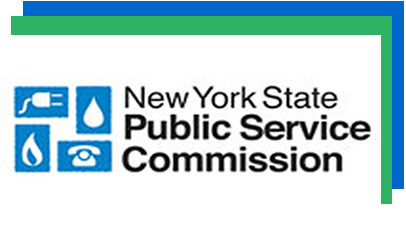I have blogged about state subsidies for nuclear power before. As nuclear power loses competitiveness against cheaper fossil fuels and ever more economical renewable energy, the nuclear industry has pressed states for subsidies on the basis of nuclear power being low-carbon (not zero carbon as is often mistakenly claimed) and needed baseload. As batteries and other energy storage technology become cheaper and more efficient, this baseload argument will lose power. The Public Service Commission (PSC) of New York state is currently considering subsidies to the tune of five hundred million dollars a year to support their aging nuclear power plants. Critics are pointing out some of the arguments against such subsidies.
Twenty years ago, New York deregulated its energy market. Suppliers had to compete in an open market and if they were not competitive, they were on their own. This moved major risk from the ratepayers to the utilities. With the need for lowering carbon emission and the arrival of wind and solar power systems, New York implemented subsidies. But those subsidies were supposed to be competed for in the market. The call for a few nuclear power stations to receive special treatment with mandated subsidies undermines the competitive energy market in New York.
The U.S. Supreme Court recently ruled that an incentive program in Maryland violated federal laws regarding the wholesale energy market. Some critics claim that this ruling means that New York's subsidy plan is illegal. They say that if nuclear power plants in upstate New York receive state mandated subsidies, this will cause distortion in the wholesale energy market and drive down the price that other non-nuclear energy suppliers can charge.
Exelon owns nuclear power plants in New York. Exelon has told the state that it needs to make at least fifty dollars per megawatt hour in order to break even. The PSC plan suggests that Exelon should get fifty six dollars and fifty cents per megawatt hour which is more than Exelon is asking. And the PSC plan also calls for raising the rate every two years. Critics say that the fifty dollar estimate is far too high and that Exelon should be able to operate its reactors for forty dollars per megawatt hour.
The PSC estimates that the price for electric in New York will rise steadily for the next ten years. Within six years, the PSC estimates that the price for electricity will rise past the guaranteed price being planned for Exelon and the subsidies will no longer be needed. However, it is difficult to project accurate long term price estimates for electrical power. A regional utility in the Northeast suggests that estimates should not be made for electricity prices more than six years in the future. Bad long term estimates in the past almost bankrupted a Northeast utility and required billions of dollars from customers to bail out the failing utility.
The question of nuclear subsidies is an important and complex issue. Decisions made by the PSC will affect the New York energy market for years. Sufficient time must be allowed for all stakeholders to consider and comment on subsidy plans. Issues of this complexity usually require months of debate before important decisions are made. Unfortunately, the PSC just released their subsidy plan three weeks ago and only allowed two weeks for comments. Exelon intends to make a decision soon on continuing to operate their plants in New York. If the PSC does not provide subsidies, Exelon is threatening to close their New York plants. Critics say that more time is necessary for a proper public review of the subsidy plan.
